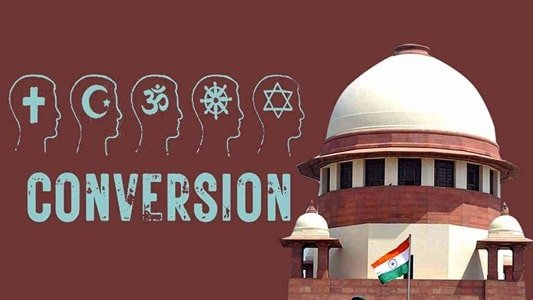Rajasthan’s announcement of a new anti-conversion law has sparked a multifaceted debate, reflecting broader national tensions around religious freedom and social cohesion. The state’s decision, communicated to the Supreme Court, aligns with similar measures in various Indian states, each navigating the complex interplay of protecting religious integrity and upholding constitutional freedoms.
History of Anti-Conversion Laws in India
Anti-conversion laws in India date back to the British colonial era, when princely states enacted measures to curb conversions, mainly driven by the presence of Christian missionaries. These laws aimed to preserve the Hindu religious identity against perceived external threats. Post-independence, multiple attempts to pass national anti-conversion legislation failed due to insufficient political support. States, however, retain the authority to enact their own laws under the constitutional provision that law and order are state subjects.

The Current Legal Landscape
As of now, eight states have “Freedom of Religion” laws aimed at preventing conversions through force, fraud, or inducement. These states include Odisha, Madhya Pradesh, Arunachal Pradesh, Chhattisgarh, Gujarat, Himachal Pradesh, Jharkhand, and Uttarakhand. Some of these laws also address conversions related to marriage, declaring such marriages void if found to be primarily for conversion purposes.
Rajasthan’s Legislative Journey
Rajasthan has previously attempted to introduce anti-conversion laws in 2006 and 2008. However, these bills did not receive gubernatorial or presidential assent. The current push indicates a renewed political will, likely influenced by recent incidents and a broader national discourse on religious conversions. The Supreme Court’s urging of the central government to address forced conversions adds a judicial endorsement to such legislative efforts.
Provisions and Controversies
Typical provisions in state anti-conversion laws include mandatory declarations of intent to convert, penalties for conversions by deceit, force, or inducement, and sometimes, the voiding of marriages predicated on conversion. Rajasthan’s new law is expected to follow this template. Critics argue that these laws often target minority religions and create a climate of fear and hostility, undermining the constitutional right to freedom of religion. Reports from the United States Commission on International Religious Freedom (USCIRF) suggest these laws can lead to harassment and arrests of religious minorities without substantial evidence.
Implementation and Impact
Enforcement of anti-conversion laws has seen varying degrees of strictness across states. Uttar Pradesh’s recent law, for instance, mandates a 60-day notice period for those intending to convert, considered one of the most stringent measures. States like Himachal Pradesh and Uttarakhand have similarly stringent requirements and have faced criticism for potential misuse against religious minorities.
Broader National and International Reactions
Nationally, the discourse around anti-conversion laws reflects deep societal divides. Proponents view these laws as necessary to maintain social harmony and protect vulnerable populations from coercive practices. Opponents see them as tools for majoritarian control and suppression of religious freedom. Internationally, bodies like USCIRF have criticized these laws for violating international human rights standards, emphasizing the adverse effects on religious minorities.
Conclusion
The introduction of the anti-conversion law in Rajasthan is set against a backdrop of historical precedent, legal complexity, and ongoing social debates. As the state moves forward with this legislation, its implications will be closely watched both within India and internationally, reflecting broader concerns about religious freedom and the state’s role in regulating personal belief systems.

Our dedicated team gathers information from all the reliable sources to make the law accessible and understandable for everyone. We provide the latest legal news stories from across the country, delivered straight to you.
